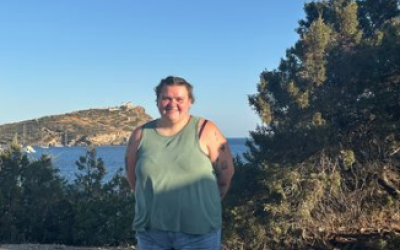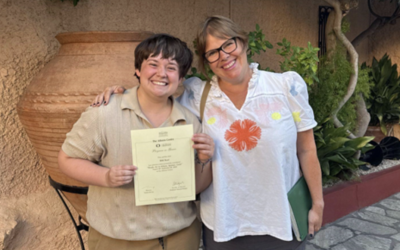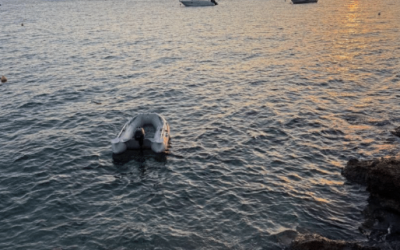The unique landscape of the Greek islands and the multilayered city of Athens and the island of Crete provide the setting for this three-week studio art course. Through a series of lectures, fieldwork, daily excursions to archaeological sites and museums, contemporary galleries and engagement with land and sea, students will have the opportunity to weave their experience of place and consideration of history and art into the practice of making art. Our methods will be interdisciplinary and open to various modes of expression, which might include but are not limited to, drawing and painting, text, performance, photography, sound and video. The emphasis is less on a technique or process and more on developing a methodology that creatively articulates your response to your surroundings and experience of travel in Greece.
In addition to the daily practice of making art, an important component of the course will be the study of artists who engage in practices that involve traveling to or otherwise focusing on specific geographic locations. We will look toward these practices to give shape to student’s artistic production during this course. We will examine conventional examples of art dealing with how place forms social, historical and cultural values as well as artists who complicate traditional ways of representing geographic sites, or their activity at those sites.





